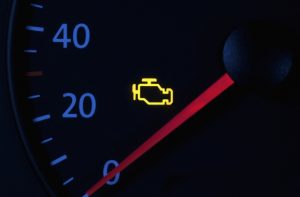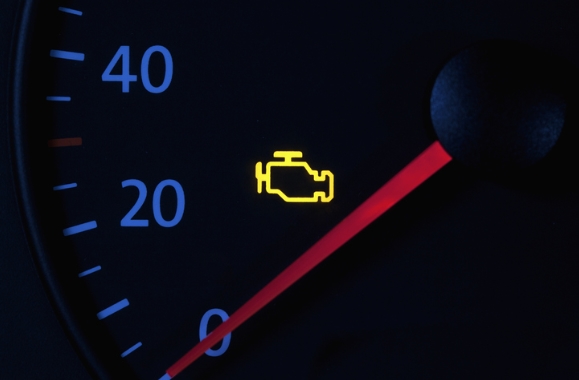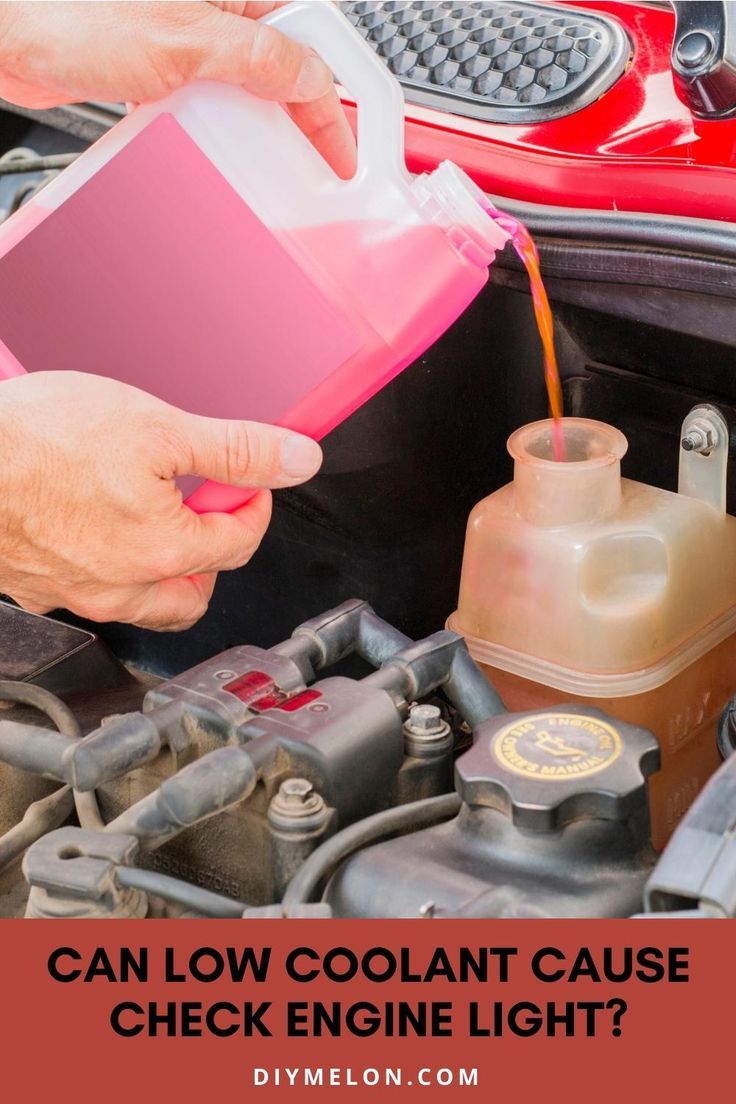Yes, low coolant can cause the check engine light to come on. This warning light signals various issues, including low coolant levels.
Understanding why your check engine light is on can be worrying. When it happens, it indicates a potential problem with your vehicle. One common cause is low coolant. Coolant is essential for your engine’s health. It helps regulate temperature and prevents overheating.
If levels drop, your engine may not work properly, leading to the check engine light turning on. Knowing the signs and reasons behind this can help you maintain your car better. Read on to learn why low coolant affects your engine and what you can do about it.
Introduction To Low Coolant And Check Engine Light
Coolant helps keep your engine cool. It prevents overheating. It also helps in maintaining the engine’s temperature. Low coolant levels can cause problems. One major issue is the check engine light coming on.
Coolant is crucial for your car. It keeps the engine from getting too hot. Without enough coolant, the engine can overheat. This can lead to serious damage. Low coolant can also cause the check engine light to come on. It’s a sign something is wrong.
The check engine light is an important warning. It tells you when there’s a problem with your car. Low coolant can trigger this light. It’s a sign to check the coolant level. Ignoring it can lead to bigger issues. Always pay attention to this light.
Symptoms Of Low Coolant
The engine may get too hot. Low coolant means less liquid to cool the engine. This can make parts overheat and stop working. The temperature gauge will show high. Steam might come from the hood.
Coolant leaks are easy to spot. Look for puddles under the car. The liquid is usually green, orange, or pink. Leaks can come from the radiator, hoses, or water pump. These leaks can cause low coolant levels quickly.
Common Causes Of Low Coolant
A leaking radiator can cause low coolant. Coolant escapes through cracks or holes. These leaks may be small or large. Small leaks can be hard to spot. Large leaks leave puddles under your car. Your engine may overheat due to low coolant.
A faulty water pump can lower coolant levels. The water pump moves coolant through the engine. If the pump fails, coolant leaks out. This causes the engine to run hot. The check engine light may come on due to overheating. Always check your water pump if coolant is low.
How Coolant Levels Affect Engine Performance
Coolant helps keep your engine at the right temperature. Without enough coolant, your engine can get too hot. This can cause serious damage. Low coolant means the engine cannot stay cool. The check engine light might come on to warn you.
Coolant also helps with lubrication. It keeps engine parts moving smoothly. Low coolant means less lubrication. Parts can wear out faster. The engine works harder and can overheat. This can trigger the check engine light. Regularly check and fill your coolant. Keep your engine safe.
Can Low Coolant Trigger The Check Engine Light?
Low coolant levels can make sensors act strangely. These sensors help the engine run well. If the coolant is low, the sensors may not work right. This might cause the check engine light to turn on. The sensors need coolant to keep cool. Without enough coolant, they can give wrong signals.
Coolant helps keep the engine at the right temperature. Low coolant can make the engine too hot. Hot engines can damage sensors. Damaged sensors send wrong signals to the car’s computer. This might cause the check engine light to come on. Keeping coolant at the right level is very important.
Diagnosing Low Coolant Issues
Low coolant can cause the check engine light to come on. First, look at the coolant level in the reservoir. The level should be between the minimum and maximum marks. If it’s too low, it can cause engine problems. Also, check for any leaks around the radiator and hoses. Leaks can cause a drop in coolant level. Inspect the radiator cap for damage. A broken cap can cause coolant loss. Always make sure the engine is cool before checking. Hot engines can cause burns. Regular checks can prevent low coolant issues.
Diagnostic tools can help find low coolant problems. OBD scanners can read engine codes. These tools show why the check engine light is on. Some scanners can check coolant temperature. This helps find overheating issues. Mechanics use pressure testers to find leaks. These tools check the cooling system for leaks. Thermal cameras can find hot spots in the engine. Hot spots can mean low coolant. Using these tools can make finding problems easier. Always follow the tool instructions for safety.
Steps To Address Low Coolant Problems
Open the car’s hood and find the coolant reservoir. Check the coolant level. Add coolant if the level is low. Always use the correct type of coolant. Follow the car’s manual. Do not overfill the reservoir. Secure the cap tightly after refilling. Run the engine for a few minutes. Check for leaks or drops in coolant levels.
Inspect the engine for coolant leaks. Look for wet spots under the car. Check hoses and the radiator for cracks or holes. Replace damaged parts immediately. Use a sealant for minor leaks. Visit a mechanic for major repairs. Regular checks can prevent serious issues.
.png?t=1510869631279&width=684&height=1711&name=Vehicle%20Warning%20Lights%20(1).png)
Credit: noelins.com
Preventive Measures For Coolant Maintenance
Check the coolant level often. Low coolant can harm the engine. Look at the coolant reservoir. It should be full. Add more if needed. Use the right type. Follow the car’s manual.
Use the correct mix of coolant and water. It should be 50/50. This mix prevents freezing and boiling. Always use clean water. Tap water can be dirty. Distilled water is best. Clean coolant keeps the engine safe.
When To Seek Professional Help
Low coolant levels can trigger the check engine light. Seek professional help to diagnose and fix the issue promptly. Ignoring it may lead to engine damage.
Persistent Issues
If your car has persistent issues, seek professional help. Low coolant can cause various problems. The check engine light may come on. The engine may overheat. You might notice strange noises. These issues need expert attention.
Advanced Diagnostics
Advanced diagnostics can find hidden problems. Mechanics use special tools. They check the engine and other parts. This can prevent bigger issues. Regular checks are important. Keep your car in good condition. It will run smoothly and last longer.

Credit: www.kseal.com

Credit: www.kseal.com
Frequently Asked Questions
Will The Engine Light Come On If The Coolant Is Low?
Yes, the engine light can come on if the coolant is low. Low coolant can trigger the sensor.
How Does A Car Act When Coolant Is Low?
A car with low coolant may overheat, causing the engine to run hot. You might notice steam from the hood and poor heater performance. Low coolant can also trigger the engine warning light.
Can Low Refrigerant Cause Check Engine Light?
Low refrigerant typically won’t cause the check engine light. It may affect AC performance but not engine diagnostics.
What Is The Most Common Cause Of A Check Engine Light?
The most common cause of a check engine light is a faulty oxygen sensor. This sensor measures the amount of unburned oxygen in the exhaust system.
Conclusion
Low coolant can definitely trigger the check engine light. Regularly check your coolant levels. This helps avoid unexpected engine problems. Ignoring this can lead to costly repairs. Proper vehicle maintenance ensures a longer lifespan. Always consult a mechanic if unsure.
This keeps your car running smoothly. Stay proactive, stay safe on the road.

